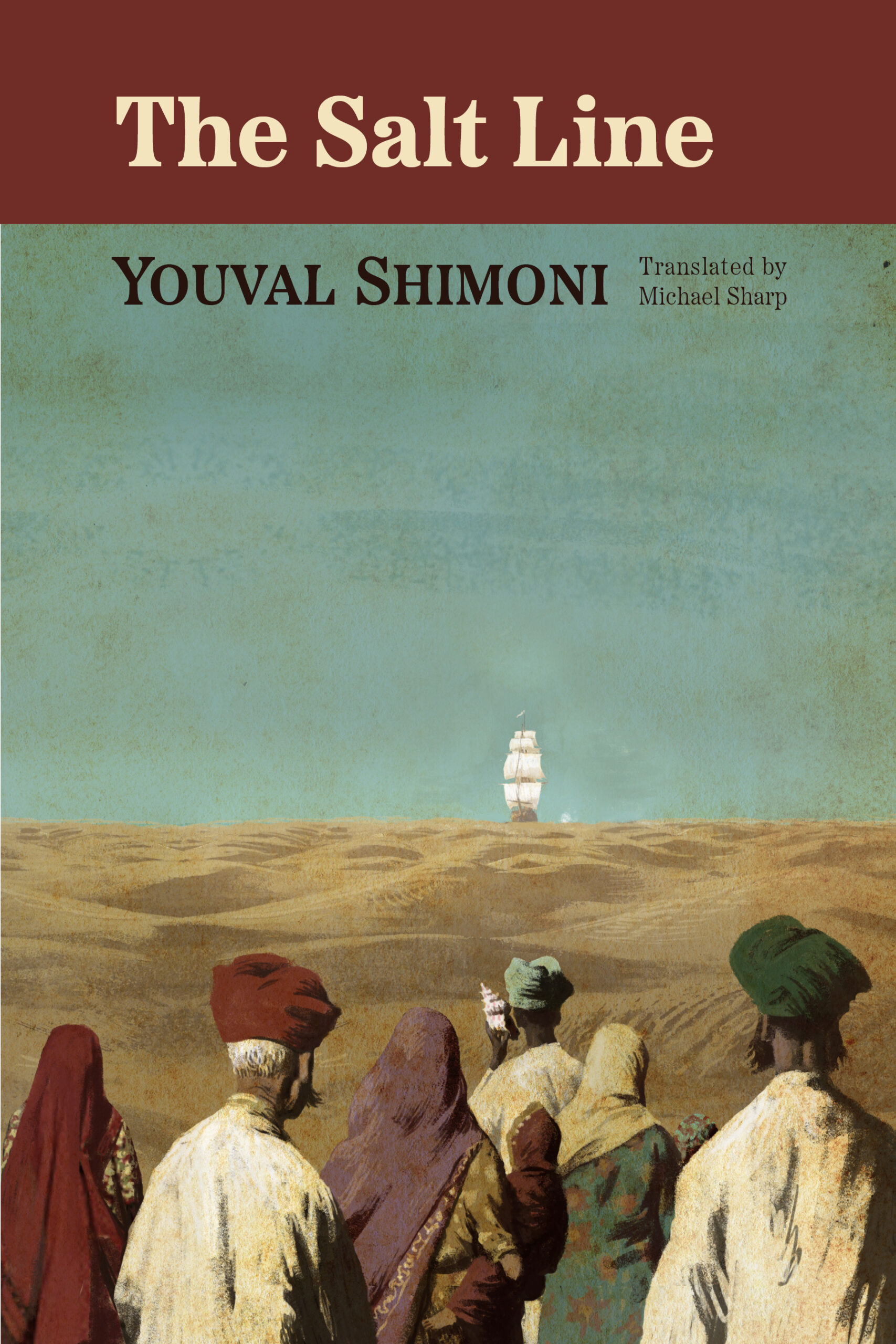Author
Youval Shimoni was born in Jerusalem in 1955. He studied cinema at Tel Aviv University and first began publishing in 1990. Shimoni is a senior editor at the Am Oved Publishing House and has taught creative writing at Tel Aviv, Haifa and Bar Ilan University. He has been awarded the Bernstein Prize (2001), the Prime Minister’s Prize (2005) and both the Brenner Prize (2015) and the Newman Prize (2016) for “The Salt Line”. In 2018 a two-day international conference on his works was held at the University of Cambridge.
South African born translator Michael Sharp lives in Israel where for many years he produced music programs for Israel Radio. He has translated a non-fiction work and four novels including Youval Shimoni’s “A Room”.
Reviews
“You have created a vast world. You have created a number of worlds. And for two weeks I have been passing through your worlds and on almost every page new vistas are revealed. Vistas and sounds and smells and tastes as well as threads leading from one world to another page by page. This vast book contains some lofty peaks the likes of which I do not know many … A glorious and mighty book. In a few weeks time I shall return to read it … and I shall restrain myself from commencing a rereading right away … In the meanwhile thank you for this wonder.” –Amos Oz
“Few novels such as this have been written in literature in general and in Hebrew literature in particular … The Salt Line is a novel that gives the reader a jolt, both intellectual and emotional. Its importance lies in its attempts to observe and understand the functioning of human agency in general and Jewish-Israeli human agency in particular.” – The Brenner Prize Committee
“A monumental masterpiece … The novel’s powerful, mature narrative voice produces a flowing read that one follows with unbroken interest … Captivating and engrossing … [Shimoni displays] marvelous skill for telling a story, with power, intensity and rare virtuosity.” – Haaretz
“A magnificent work which harks back both to the dimensions of the genre of the novel when it was at its peak, and to the aspiration to embrace an entire period, and to tell a story. The story is complex … The talent is awesome … The virtuosity Shimoni has required of himself is impressive … It seems that he is conversant with all of the literary ploys that are at the disposal of a writer of prose.” – Iton 77
“Colorful, rich in imagination and in precisely what it will take to transport you into another world… What will almost certainly capture your hearts will be the way in which the author describes, as if in a movie script, situations that are close to the cinematic.” – Hitrashmut
“This is a book I shall not forget. With patience, acuity and fine discernment, a great canvas of life is spread out in this novel … The great narrative achievement also contains great ideas. This is a book that asks what human beings have been given by religions and ideologies that have decayed, and what there is in them that cannot decay. It is a book about the passions of the body and the soul that burn within people; engendering beliefs and journeys and torments and stories.” – Prof. Nissim Calderon
“I read The Salt Line with infinite enjoyment. This is a book whose inventiveness is boundless … The Salt Line is a rare masterpiece.” – Prof. Miki Gluzman
“A festival for book-lovers … A special festival for Hebrew-Israeli culture … Shimoni writes with supreme precision and polish, with a sophisticated technique and complex and credible psychology, and after doing impressive research. This text breathes, it lives and sustains itself … Superbly written.” – Yedioth Ahronoth
“Shimoni’s ability to shape linguistic constructions are almost never seen in contemporary literature … [He] expresses profound philosophical and social contents in a rigid and austere narrative framework … Shimoni is a wizard at description and he uses this talent in The Salt Line to express ideas, and not to preach … Shimoni succeeds in enthusing, exciting and enthralling us, and to make us want to take the trek together with him.” – Ynet
“Youval Shimoni’s new book is demanding but engrossing … There’s no one who can describe the loss inflicted by the passage of time like Shimoni.” – Time Out
“This is a novel that is all-encompassing in its content, universal in its message; a serious novel written with a rare skill, and whoever follows the narrative step by step will learn to derive the enjoyment that literature lovers encounter only when reading masterpieces.” – Marah & E-Mago
“Shimoni has spread a broad canvas for his novel, in the way of the great writers of the past … Shimoni sets a high and universal standard, both innovative and classical, which it is doubtful that any other Israeli writer would be able (or willing) to attain. Shimoni’s achievement is remarkable in the large-scale intellectual structure of the novel, in its faultless artistic weave, in the level of the sentence and the detail, and certainly in the scope and the meticulousness of the basic research … A rare writer, faithful to his art.” – Maariv
“A very surprising novel, flowing, readable, alive.” – TV Channel 1
“I believe that The Salt Line is a rare event in the history of Israeli literature over the past fifty years – in any case (and at least that), greater than its current dimensions by dozens of numbers. The possibility that such an event will actually take place in the current state of the so-called ‘our literature’ is far from the mind – bordering on the impossible. On the other hand, our entire history here in literature is a continuing expectation of such an event.” – Amnon Navot





